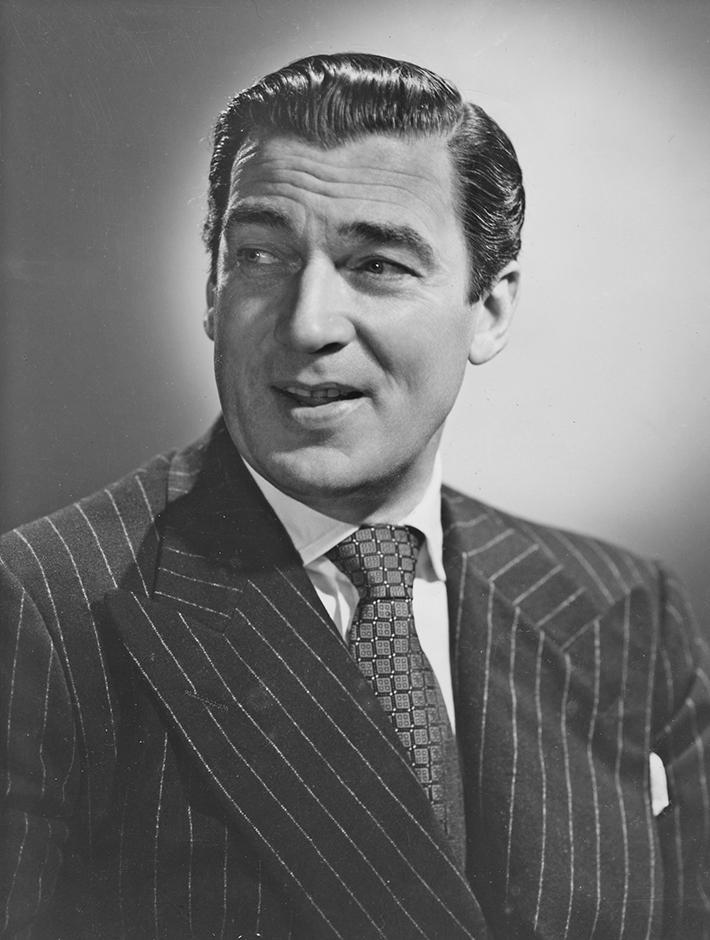
The 6-foot 3-inch, Canadian-born Walter Pidgeon -- a fine singer as well as actor -- made his Broadway bow in February 1925 in Elsie Janis's musical revue Puzzles of 1925. After the show closed, he left for Hollywood with his first wife (who would die there giving birth to their daughter Edna, on October 26, 1926). He performed in numerous silent films and later became one of MGM's major contract players in the sound years. He was twice nominated for Academy Awards: Mrs. Miniver (1942) and Madame Curie (1943). He joined the Guild Board in 1941, replacing Gloria Stuart, and served as a Board member or Officer through 1974. As newly-elected President in November, 1952 Walter had quite a challenge dropped into his distinguished lap, commencing December 1: for the first time in its nearly 20-year existence, the Screen Actors Guild was on strike! Against whom? - "All producers of television filmed commercials."The infamous "MCA Waiver": on July 14, 1952, Walter helped convince the Guild's Board of Directors to allow the agency MCA to also produce filmed television programs through its subsidiary, Revue Productions. Why? Economics, for one. The same year the "Paramount Decree" was handed down, Hollywood film production was hurting seriously. TV production in New York was booming, but actors received comparatively meager salaries for the work there, while Hollywood jobs steadily shrank. Chet Migden, who would become the Guild's Executive Secretary 20 years later was in the Board room that July day in '52, and recalled the following: "... the [MCA waiver idea] was going down to total defeat until... Walter Pidgeon - loveable, wonderful gentleman - who had at that particular moment just been terminated by MGM after I don't know how many years of being a leading actor at MGM ... said: 'Now, now wait a minute ... We're dying [in Hollywood]. What's the alternative? To go to New York and work in live television for a couple of hundred dollars? We're starving to death. We're going down in flames. What have we got to lose? Let 'em try it. I mean the worst thing that can happen is it'll work." The Board minutes indicate Walter motioned to approve the MCA waiver, Leon Ames seconded, and it was done.
